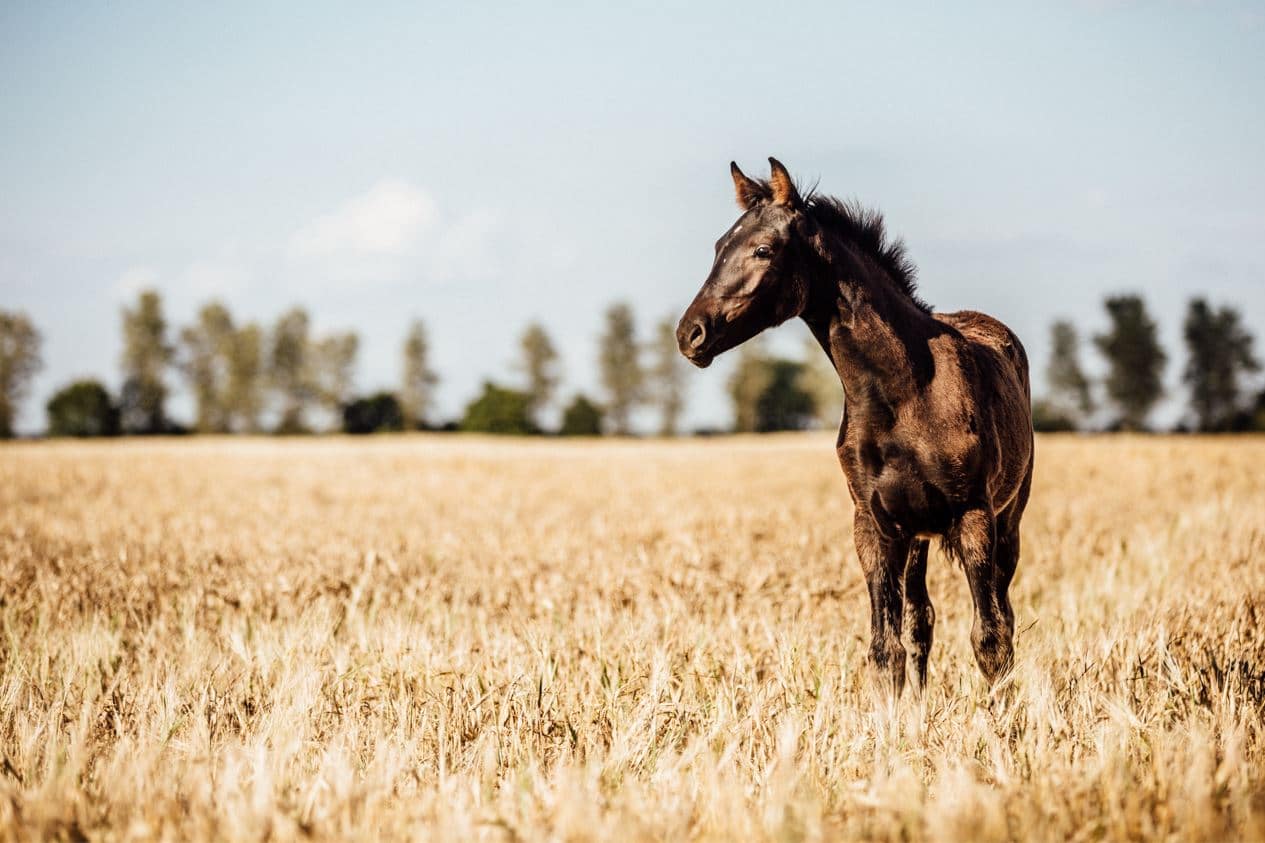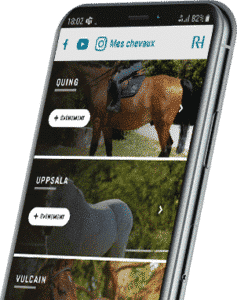Making a horse fat is one of the frequent preoccupations of horse owners, to maintain their condition. Indeed, an unexplained loss of condition is often the clinical sign of an illness, a parasitic infection, ulcers, etc.
If your horse is losing condition, here are a few tips on how to fatten him up and meet all his nutritional needs.
Check the health of your horse
Before trying to fatten a horse, make sure it is healthy by calling your veterinarian. Your veterinarian will do the necessary tests, such as a blood test and/or a coprology test. The blood test will verify that the liver, kidneys, and intestines are functioning properly. It will also verify that your horse is not suffering from a virus or inflammation. Coprology will check for worms in the stool, which can explain abnormal weight loss in a horse.
Also check with an equine dentist to make sure your horse’s teeth are free of overgrowth or abnormalities. A sore mouth can lead to chewing problems and therefore poor feed absorption. Older horses may also have dental problems that can prevent proper chewing of feed, such as teeth that move or fall out.
Also, drops in temperature can cause your horse to lose condition as he will burn more energy for thermoregulation to maintain his body temperature. Don’t hesitate to cover him up when temperatures drop to maintain his body temperature, especially if he is getting older. You may need to adjust your horse’s diet in winter to manage its energy intake.
Putting on weight by increasing fiber intake
One of the solutions to make a horse gain weight quickly is to increase its fiber intake. Fiber is contained in hay, which is an integral part of the horse’s diet. It is therefore important to provide sufficient fiber, ideally with unlimited access to hay. Good fiber can also be found in pasture grass, especially spring grass, which is rich in minerals. Alfalfa, if it is of good quality, is also a good source of fiber because it contains more energy than hay, but it is important to control the overall protein level of the ration if you are also feeding a feed.
Adapting the horse’s concentrated feed ration
If your horse eats concentrated feed, make sure that it is adapted to his lifestyle and his daily effort. Concentrated feeds must be sources of fat, proteins, fibers, but also vitamins, trace elements, prebiotics and probiotics, antioxidants, etc. The products of the Royal Horse range meet all the nutritional needs of horses, whether they are sport or leisure horses, retired or resting. They come in pellets or flakes according to the dietary needs of your horse.
Introduce oil in your horse’s ration to make him fat
Oil has many benefits for a horse’s health, but which oil should you choose to fatten a horse? It is best to use rapeseed oil, which is the most easily assimilated. In addition to promoting weight gain, the oil makes the coat shiny, provides fatty acids and vitamins essential to the good health of your horse. It also promotes the proper digestion of other foods.
Isio 4 type oil is also a good solution because it contains a mixture of several seeds. Be careful, however, to use the oil only for a period of 2 to 3 months (especially during the fall and winter). You should not give oil to your horse permanently.
Adding beet pulp to your horse’s diet
Low in sugar, beet pulp has many advantages for fattening a horse. It is richer in calories than forage, but also lower in energy than concentrated feed.
Rich in pectin (with a natural prebiotic effect), it releases energy slowly in the horse’s body, like hay. It is also a good source of calcium and does not contain starch (very harmful to your horse’s digestive system). Ideal for horses with a weak stomach, it is a source of hydration during periods of high heat because it has a high water retention capacity.
Mineral and vitamin supplements
To promote your horse’s recovery, you can supplement its ration with food supplements. Many products on the market allow you to rebalance your horse’s ration and therefore offer him optimal nutrition.
A balanced diet is essential for your horse’s well-being. Do not hesitate to consult a veterinarian or an equine nutritionist to find the ideal ration to make a horse grow bigger, without risk for its health.
Deworming the horse several times a year
A horse should be dewormed at least twice a year. It is recommended to deworm 4 times a year if your horse lives in the meadow permanently. Deworming is the best way to fight against parasitic affections of your horse and thus to avoid the losses of state.
Check for proper access to feed
When horses live in a herd, a social order is established between the dominant and the dominated. If your horse is one of the dominant ones, it is possible that a dominant horse is blocking his access to food. This could be the cause of unexplained weight loss. So, take the time to observe your horse among his peers, especially when feeding.



